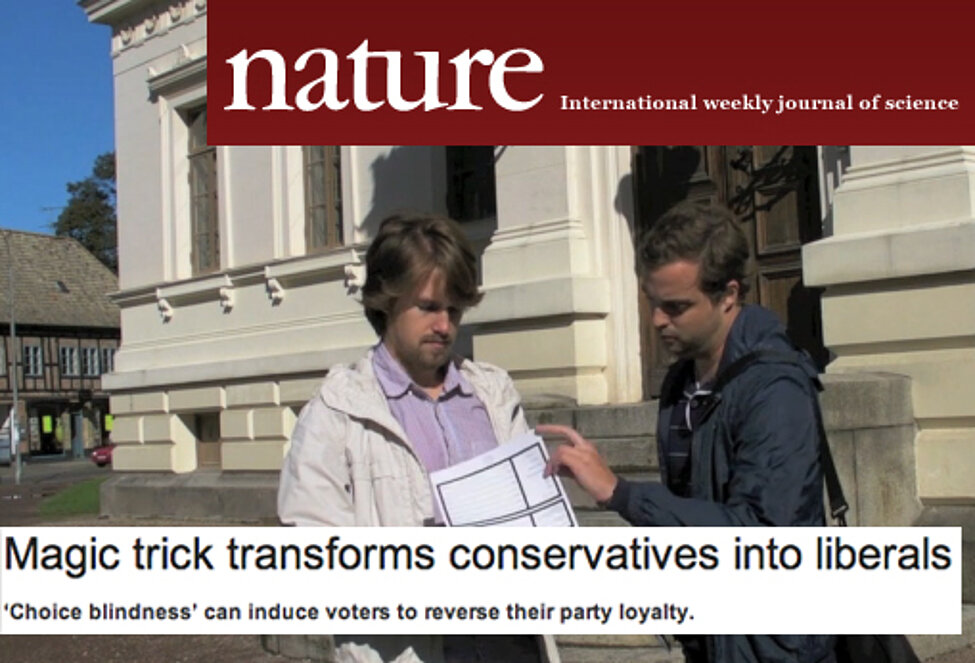"When US presidential candidate Mitt Romney said last year that he was not even going to try to reach 47% of the US electorate, and that he would focus on the 5–10% thought to be floating voters, he was articulating a commonly held opinion: that most voters are locked in to their ideological party loyalty. But Lars Hall, a cognitive scientist at Lund University in Sweden, knew better. “His calculation, only zeroing in on 10% of voters, is a risky proposition,” he says. When Hall and his colleagues tested the rigidity of people’s political attitudes and voting intentions during Sweden’s 2010 general election, they discovered that loyalty was malleable: nearly half of all voters were open to changing their minds. The team's work is published today in PLoS ONE1."
Read the news article about our latest choice blindness finding in Nature News. Visit our Choice Blindness Lab: http://www.lucs.lu.se/choice-blindness-group/Choice Blindness in Nature News
By 8 -
Published 10 April 2013

Read the news article about our latest choice blindness finding in Nature News.
http://www.lucs.lu.se/wp-content/uploads/2013/04/naturepic.jpg
2024-10-20
Peter Gärdenfors receives the Jean Nicod Prize 2025 (The Institut Jean Nicod)
2024-10-18
LU-informationsvideo med Jana Holsanova: "Samverkan för bättre syntolkning"
2024-10-03
Peter Gärdenfors at The University of Liverpool Evolutionary Anthropology Webinar Talk
2024-10-01
Epi (LUCS Robotics) performing as "the emotional support karaoke bot" at Malmö Gallery Weekend 2024.
2024-09-26
3 x LUCS på Bokmässan 2024 i Göteborg, 26–29 september.
